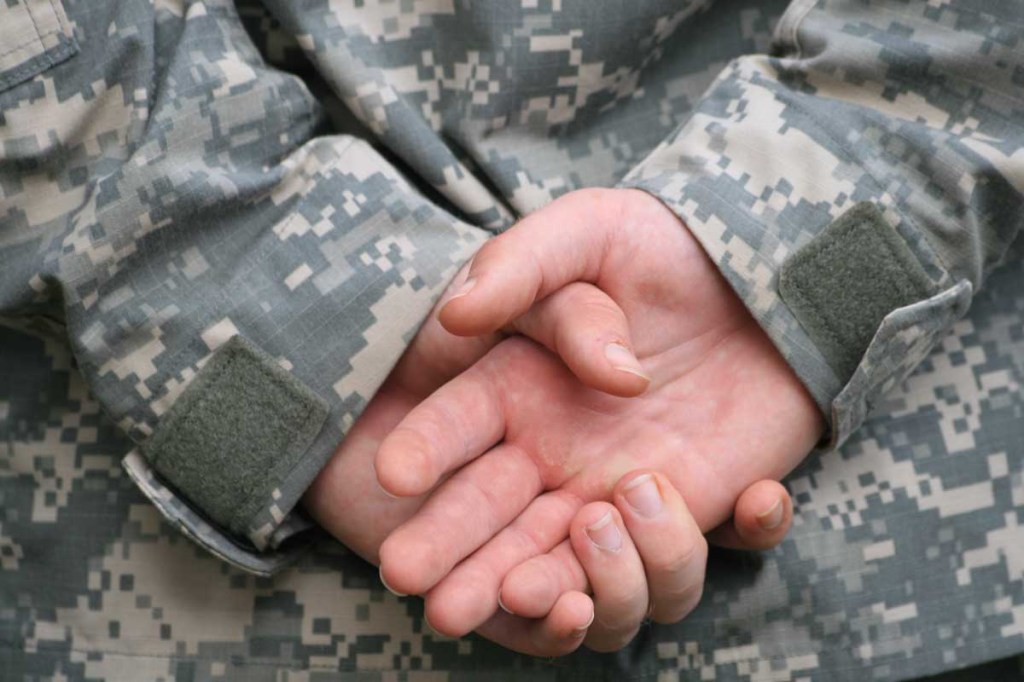Make women eligible for the draft? No, new legislation says: Ditch the system entirely.
Published 12:30 pm Friday, February 12, 2016

- Make women eligible for the draft? No, new legislation says: Ditch the system entirely.
WASHINGTON – The Pentagon opening all jobs in combat units to female service members has raised the question of whether women should be required to register for any future military draft. But a handful of congressmen have another proposal: Why not eliminate the Selective Service System that handles military drafts altogether?
Reps. Mike Coffman, R.-Colo., Peter DeFazio, D.-Ore., Dana Rohrabacher, R-Calif., and Jared Polis, D.-Colo., introduced legislation Thursday that would do so. No draft has been held since the Vietnam War, but the system has existed in some form since 1917, when the United States was preparing to enter World War I.
“I think we are sort of at the proverbial fork in the road,” Coffman said Thursday. “I know there are a lot of members of Congress who would probably like to ignore this, but I don’t think we have a choice. Either you require registration for men and women, or you do away with the system altogether. And I’ve chosen to do away with the system altogether.”
The argument is two-fold, said Coffman, who has served as an enlisted infantry in the Army in the early 1970s and later as an infantry officer in the Marine Corps. First, fighting wars with professionalized volunteer service members has led to a stronger military than using those who were drafted “and don’t want to be there,” Coffman said. And second, eliminating the Selective Service System would save the U.S. government about $24 million per year, he added.
The issue has come up periodically since then-Defense Secretary Leon Panetta announced in January 2013 that the U.S. military would move to integrate men and women fully by this spring. But it has been especially emotional since Defense Secretary Ashton Carter affirmed that decision in December, saying no exceptions would be granted to the services to keep any position closed to women.
Carter’s move appeared to upend the premise under which women are exempt from any draft. It stems from the 1981 Supreme Court case Rostker v. Goldberg, which reversed the decision of a lower court and found that the Selective Service System could stand as it was because women were not allowed to joint combat units.
Carter has said that a review of the Selective Service System is prudent, but has not signaled whether he is in favor of opening it to women, eliminating it altogether, or something in between. But in recent days, the top officers in the Army and Marine Corps, Gens. Mark A. Milley and Robert B. Neller, have said they are in favor of requiring women to register for future drafts. Sen. John McCain, R.-Ariz., chairman of the Senate Armed Services Committee, has agreed, saying it is the “logical conclusion of the decision to open combat positions to women.”
The current version of the Military Selective Service Act requires that virtually all men in the United States between the ages of 18 and 26 register, most within 30 days of turning 18. That includes non-U.S. citizens living in the United States, such as refugees. But no version of the Selective Service Act has ever required a woman to register.
Another bill to alter the Selective Service Law, the Draft America’s Daughters Act of 2016, was proposed last week by Rep. Duncan Hunter, R-Calif., a Marine Corps veteran, and Rep. Ryan Zinke, R-Mont., a former Navy SEAL, and called for women to be subject to any draft. It was not clear whether the lawmakers would vote for their own legislation, but like Coffman, they called for a debate on the issue in Congress.
Carter told a group of Marines in California last week that he expects Congress to take up the issue, but at least one lawmaker, Sen. Joni Ernst, R-Iowa, said that the Obama administration needs to “take ownership of this secondary conversation” stemming from gender integration and make a recommendation first.
“I think the administration needs to make their recommendation,” Ernst said in an interview with reporters in her office. “I think it needs to be soon. I mean, they wanted these plans fully implemented by the first of April. Well, I would say that. . . in my mind, there was a hurry to get this done without thinking through some of the repercussions.”
At least 146 women have been killed in combat in Iraq and Afghanistan, according to Defense Department statistics. At least 800 more have been wounded.




